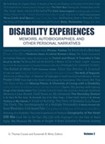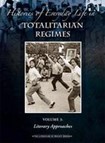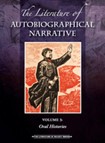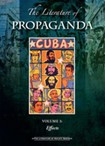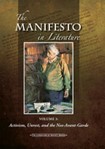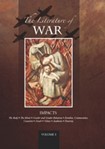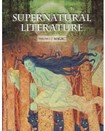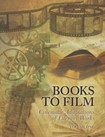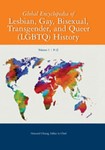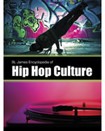| By Gale Staff |
Gale is excited to announce the inclusion of more than 2,000 additional entries in the Gale Literature Resource Center, drawn from 10 titles that were selected based on their unique perspectives that include both American and international experiences, often with an emphasis on first-person narratives.
Most of these titles make up the Gale Literature of Society (LOS) series, which provides a rich tapestry of points of view, from modern-day in the United States to historical eras in global settings, from diverse communities. Many entries are on memoirs and autobiographies, ensuring an authentic viewpoint of events or topics.
Each title in the LOS series contains 200 to 300 essays on specific literary works with a common theme (such as propaganda or war) or genre (such as science fiction or autobiography). The titles endeavor to go beyond the literary perspective to provide the historical, cultural, and social context of works discussed, in addition to discussion on themes and style and critical reception. This approach fosters the use of literature as a resource for multidisciplinary studies. Entries begin with a brief summary and list of key information and end with further readings. Many include primary source excerpts.
The LOS titles added to Gale Literature Resource Center include:
Disability Experiences: Memoirs, Autobiographies, and Other Personal Narratives
Dartmouth Honorable Mention 2019
Contains signed essays on 200 narrative works written by persons with disabilities to directly share their lived experiences. The disabilities represented are mostly physical, but also include psychological/psychiatric conditions, developmental/intellectual impairments, and addiction. Works covered date from as early as 1470 to as recent as 2018. While most of the authors are from the United States, one-third of the works are by authors from elsewhere around the globe. Care was given to represent a wide range of other cultures, heritage, and lifestyles, in areas such as religion, sexual orientation, gender identification, color, and other factors that―along with ability―constitute intersectional experiences.
Histories of Everyday Life in Totalitarian Regimes
Offers 300 signed essays on literary works that explore daily life in such totalitarian dictatorships as Nazi Germany, Stalin’s Soviet Union, China under Mao, and North Korea. Two-thirds of the works focus on compelling personal histories of individuals in these regimes, conveyed in such firsthand accounts as memoirs, autobiographies, diaries, and letters. An additional 100 entries further elucidate daily life in totalitarian regimes by exploring works of fiction dedicated to the topic. Perspectives from both the rulers and the ruled, from different age groups and occupations, are represented to give an understanding of the social, cultural, political, and economic conditions.
The Literature of Autobiographical Narrative
Autobiographies, oral histories, diaries, and journals are records of the human experience, snapshots of a time and place that are brought to life in our consciousness through words on a page. They help us understand history more from a personal rather than historical level. This work offers 300 signed essays that focus on specific autobiographies, diaries, journals, and oral histories from around the world and various time periods to bring us closer to the human experience of history. Some entries look at those who carry on the tradition of oral history, such the West African griot, Scandinavian skald, British and Gaelic bards, Native American storytellers, and more.
RUSA’s Outstanding Reference Sources 2012
From early theater to public speeches to magazines, books, films, and more, propaganda pervades our society. This work contains 300 signed essays on specific works of all kinds that have been used to spread propaganda and influence public opinion. It showcases propaganda portrayed in literature, such as Aldous Huxley’s Brave New World. It also features literature that was specifically created as propaganda or used in that way, such as Thomas Dixon’s The Leopard’s Spots, The Clansman,and The Traitor. Finally, it explores works that deliver a vision as described by an influential leader, such as Quotations from Chairman Mao Tse-Tung.
The manifesto has taken its place as one of history’s greatest artifacts, inspiring and worrying entire populations as political tools, defining and describing many important literary movements, and bringing insight into the beliefs and intentions of some of the twentieth century’s most disturbing criminal minds. Spanning from the earliest published examples dating to sixteenth-century Europe to the Declaration of Independence to the 2006 Euston Manifesto, this work offers 300 signed essays on manifestos, describing the authors and their causes, as well as the social, political, and economic philosophies that are behind them.
Booklist: Editor’s Choice 2011; RUSA’s Outstanding Reference Sources 2012
Contains 300 signed essays that focus on armed conflict throughout the world and time, highlighting the realities of war, its impact on society, and how it affects our understanding. The three volumes cover: Approaches (the ways we write about war, including propaganda, histories, memoirs, journalism, and satire), Experiences (firsthand accounts from soldiers, nurses, and civilians), and Impacts (the aftermath of war and its impact on communities and individuals). These essays help readers identify and understand the themes, focus, language, psychological and social impact, and perception of war through the eyes and words of their respective authors.
Also included in full are the following titles:
The presence of the supernatural in literature has been used to make social commentary, to establish cultural identity, to explore class or gender roles, and more. From antiquity to modern times, writers in Europe, Asia, Africa, and the Americas have crafted stories about the supernatural, which have been passed down through literature and continue to fascinate modern readers. Supernatural Literature contains 300 signed essays on specific literary works from over 40 countries, including such titles as Isaac Bashevis Singer’s The Golem, Murasaki Shikibu’s The Tale of Genji, Chinua Achebe’s Things Fall Apart, and Shakespeare’s Hamlet.
Books to Film: Cinematic Adaptations of Literary Works
Contains 80 signed essays, each devoted to one literary work and one feature film adaptation of the work. Covered works include Rashomon, Real Women Have Curves, The Tin Drum, and Uncle Tom’s Cabin. The essays provide a basic plot summary of both the literary work and its film adaptation, noting major differences between the two, critical reactions at the time of their respective releases, and information regarding the adaptation process. They also consider the context of the literary work within the author’s oeuvre; of the film within the career of the director and/or screenwriter; and of both within relevant movements, periods, and genres. Comparative analyses of narrative, themes, and style are also provided.
To further expand our coverage of underrepresented communities, we took the opportunity to add select literature-related entries from two additional Gale works:
Global Encyclopedia of Lesbian, Gay, Bisexual, Transgender, and Queer (LGBTQ) History
Dartmouth Winner 2020
Provides 46 signed entries from the larger encyclopedia on literature-related topics, such as “Pulp Fiction, Gay and Lesbian,” “Theater, Queer,” and “Sufi Treatment of Same-Sex Relations in Poetry and Prose.” Also covers a selection of specific literary works, many from the Middle East, to document queer experience within the contested political climate.
St. James Encyclopedia of Hip Hop Culture
PROSE Award finalist, 2019; Booklist’s Top 10 Pop Culture Reference list 2019; Library Journal Best Reference List, Arts & Literature 2019
Offers eight signed essays on relevant hip-hop culture topics: “Literature,” “Rap as Poetry,” “Theater,” “Comics,” “Film,” “Hip Hop Studies,” “Hip Hop–Based Education Movement,” and “Hip Hop Summits.”


